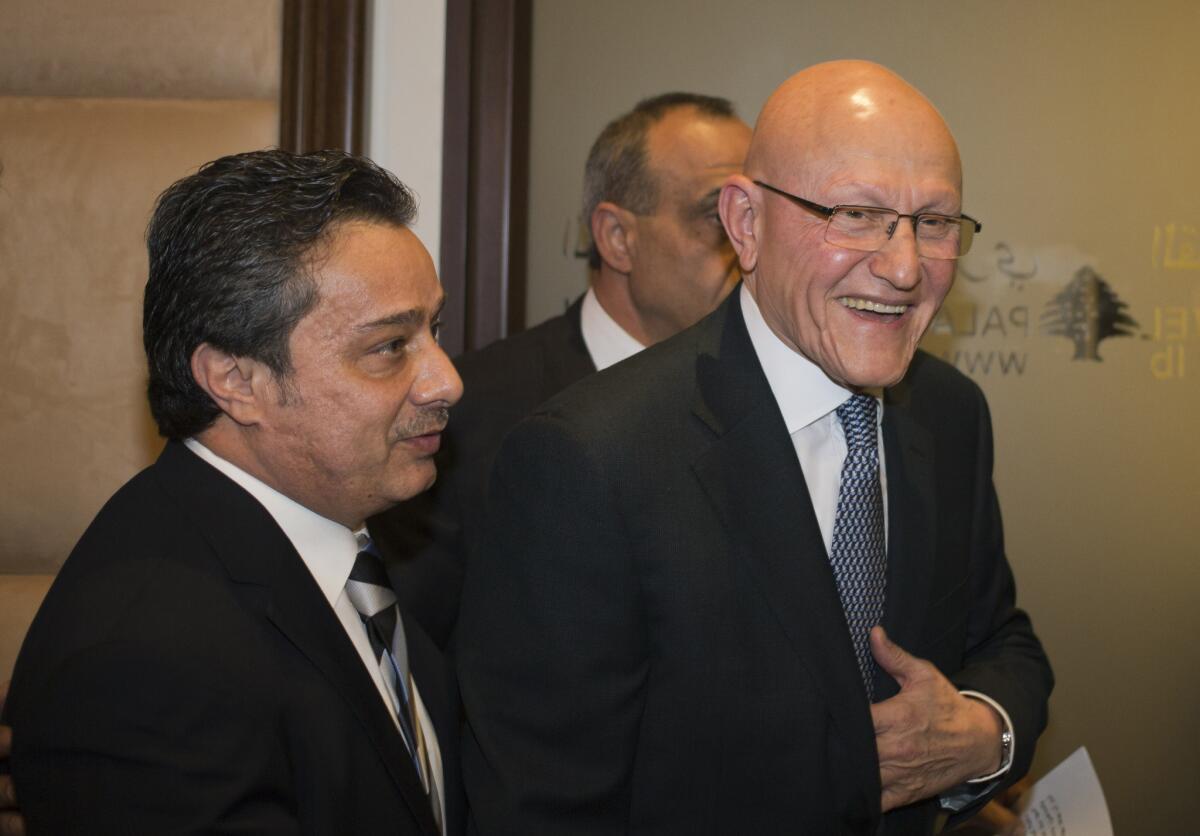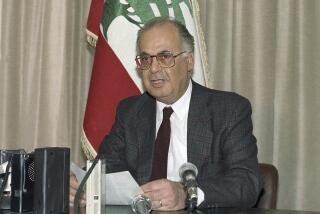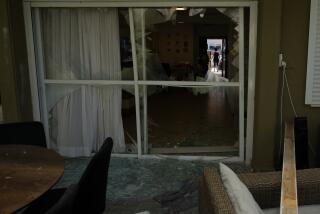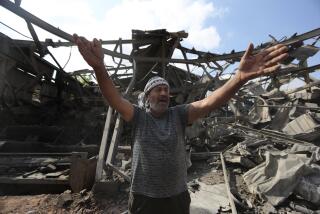New unity government named amid tension in Lebanon

BEIRUT — Breaking a 10-month deadlock, Lebanon on Saturday unveiled a new unity government as leaders struggle to maintain stability despite profound political divisions and spillover violence from the war raging in neighboring Syria.
“A government in the national interest was formed in a spirit of inclusiveness,” the new prime minister, Tammam Salam, a centrist, said in a television address.
Squeezed between Syria and Israel along the Mediterranean, Lebanon has become a second theater of the Syrian war and a surrogate battleground for the regional rivalries fueling that conflict. Lebanon, a nation of 4 million, is deeply split about the Syrian conflict.
The new Lebanese government was announced after an accord was finally crafted to the satisfaction of the nation’s two key political blocs, the Shiite Muslim Hezbollah movement and the Sunni Muslim-led Future party. Often-acrimonious talks between the parties had dragged on for months. The political power struggle will likely continue despite the naming of a new government.
The two rival political camps have diametrically opposed views on Syria. Hezbollah has dispatched militiamen to support the government of embattled Syrian President Bashar Assad. The Future bloc seeks Assad’s ouster and has demanded that Hezbollah withdraw its forces from Syria.
The clashing positions reflect the struggle for regional supremacy among two outside powers, Iran and Saudi Arabia. Shiite-dominated Iran, a major Assad supporter, is a patron of Hezbollah. Sunni-dominated Saudi Arabia, a close U.S. ally, backs the Future bloc and has helped bankroll and arm anti-Assad forces fighting in Syria.
Lebanon’s complex political and sectarian dynamics, roiled by events in Syria, combined to set the stage for the almost yearlong political impasse. Former Prime Minister Najib Mikati resigned last March amid political stalemate on a number of issues, including upcoming elections. Presidential elections are scheduled for May. Parliamentary balloting is expected to follow.
The formation of a new government involves divvying up ministries and portfolios to satisfy both the major blocs and other groups, including Christian- and Druze-affiliated political factions.
Lebanon has maintained an often uneasy peace since its own 15-year civil war ended in 1990. Syrian troops left the country in 2005 after an almost three-decade presence amid an outcry following the assassination of former Prime Minister Rafik Hariri. He was killed in a massive car bomb explosion.
Hariri’s son, Saad Hariri, leads the Sunni Future bloc but spends most of his time out of Lebanon for security reasons.
Hezbollah head Hassan Nasrallah is mostly seen on television because of concerns about possible assassination attempts.
The new government will face a myriad of challenges, including a rapidly deteriorating security scenario. A series of deadly car bomb attacks has been linked to the war in Syria. Sunni militants enraged at Hezbollah’s support of Assad have repeatedly targeted civilian districts that support Hezbollah.
patrick.mcdonnell@latimes.com
Sandels is a special correspondent.
More to Read
Sign up for Essential California
The most important California stories and recommendations in your inbox every morning.
You may occasionally receive promotional content from the Los Angeles Times.










